As a Chinese saying goes, “The importance of human life is heavier than Mount Tai.” At this critical moment, the prevention and control of the COVID-19 epidemic is the government’s top priority and our duty’s call. In the face of the severe and complex situation of the epidemic, CESE Tongjiers regard social service as their responsibility, make their contributions to fighting against the epidemic, pursue the mission of Tongji’s motto “Together in the same boat” in times of crisis, showing the Tongji spirit of “Serving the people and the world, with the responsibility of rejuvenating the Chinese nation.”, and contribute Tongji’s wisdom and strength in environmental studies to emergency response, hospital construction, and epidemic prevention and control, etc.
With a Professor-led Team, Contributing Tongji Wisdom to Fighting Against the Epidemic
Technical support for waste disposal, pollution control, and environmental governance is urgently needed for successfully controlling the epidemic. CESE Professors in relevant fields actively undertook research tasks, tackled the technical difficulties, joined the group of experts to guide the initiation of the project, offered advice for the epidemic control, and courageously assumed social their responsibility.
Since February 4th, the team of CESE Academician Xu Zuxin has actively participated in the CAE research project of “Coronavirus Transmission and Environmental Relations and Risk Prevention and Control”, and is now in charge of the research project “Controlling Strategies of Potential Coronavirus Transmission Risks of the Urban Wastewater Collection and Treatment System”. The team has also completed and issued an analysis report on “Opportunities in the COVID-19 Epidemic Crisis”
Facing the possible risks of coronavirus “fecal-oral infection”, as well as local challenges in Shanghai, such as the dense population and great difficulty in controlling the epidemic, Academician Xu Zuxin and Academician Ning Guang sent their suggestions to the Shanghai government, calling for the strict management of human excrement, to prevent coronavirus transmission through the digestive tract. Meanwhile, Academician Xu Zuxin also served as an MEE advisor for “Online Expert Support Program for Emergency Treatment of Epidemic Medical Waste and Management Technology During COVID-19 Epidemic”, and as an expert in the “Management Policy and Risk Prevention and Control Working Group”, guiding the overall approach and the macro policy.
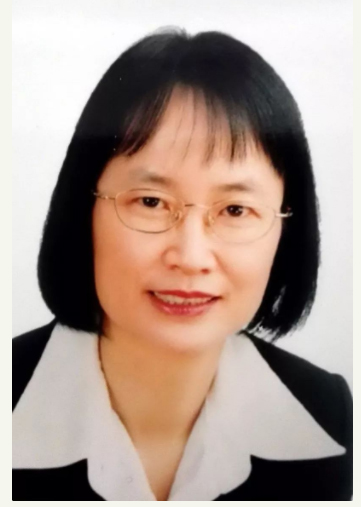
Academician Xu Zuxin
Since the beginning of the epidemic, Dean of CESE, Professor Dai Xiaohu voiced the need for continued attention to the risk of pathogens transmitting through sewage and sludge, and that they require proper treatment to meet environmental safety standards. Especially for sewage and sludge in the critical epidemic areas and medical wastewater from designated hospitals, he called for focusing on its disinfection to reduce the risk of coronavirus exposure and infection in the subsequent stages. Almost at the same time, he joined the “Online Expert Support Program for Emergency Treatment of Epidemic Medical Waste and Management Technology During COVID-19 Epidemic”, and served as the leader of one of the working groups, kept in touch with the front-line hospitals and environmental experts in the epidemic area. He worked overtime with the expert group to advise on the environmental risk control of the epidemic, formulated countermeasures, and advocated relevant environmental protection businesses to provide applicable disinfection and sterilization technologies and equipment, to control the coronavirus spread in the epidemic areas. He also mobilized the strength of his team, organized a documentary and data research, to collect theoretical evidence for preventing the spread of coronavirus, and discussed with the expert group to complete and issue an achievements report on “Recommendations on Enhancing Urban Wastewater Treatment and Water Environment Risk Prevention during the COVID-19 Epidemic”.
Both the US and Shenzhen No.3 People’s Hospital have inspected the feces of COVID-19 patients, and the results of remanent coronavirus are positive, which indicates a potential risk of water-borne transmission. Since the water-borne transmission mechanic remains uncertain in China, most water-supply companies lack practical experience in handling epidemics and are not clear about measures to deal with and control the coronavirus. For the safety of our drinking water, and specially invited by the Water Special Office of MOHURD, CESE Professor Yin Daqiang participated and co-compiles a special report “Recommendations for the Operation Management of Disinfecting and Virus Controlling in Drinking Water Plants”. The report is based on the Water Special Office’s achievements on drinking water source conservation, optimization of conventional and deep treatment processes, water plant network disinfection and water plant operation management, etcetera. It describes the effectiveness of drinking water disinfecting and virus controlling in China and abroad, and proposed suggestions and technical solutions to drinking water disinfecting and virus controlling in all processes of ensuring drinking water safety. The report would then be distributed to local water supply pipeline departments and water supply businesses across the country, to provide reference and guidance for microbiological risk controlling in water plants.
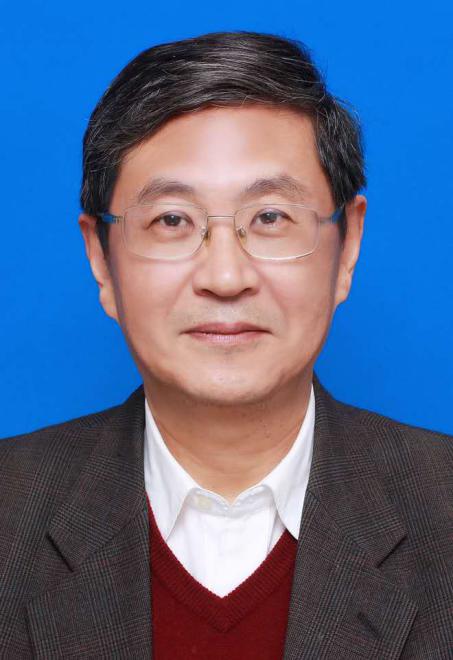
Professor Yin Daqiang
Described by Chinese and foreign media as “thundering speed” and “infrastructure mania”, Wuhan Leishenshan Hospital and Huoshenshan Hospital rose from scratch, and there was no lack of CESE Tongjiers during the construction of those two hospitals. As infectious-disease hospitals, the standards of wastewater treatment are definitely higher. CESE Professors Fan Jianwei and Yang Dianhai were the first to share their experience in water supply and drainage engineering with Tongji alumni who were fighting on the frontline. “It’s nothing, frankly. Since they are our alumni, we make academic contact whenever some new ideas come to our minds.” Says Professor Fan Jianwei, when asked about this, “We are all concerned about Leishenshan (Hospital) and we all want it to be established well. Speaking of water supply and drainage engineering, we came up with a few points that we should pay attention to, and I was eager to communicate with the designing team. They are very professional. They are the best.”
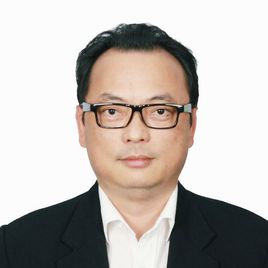
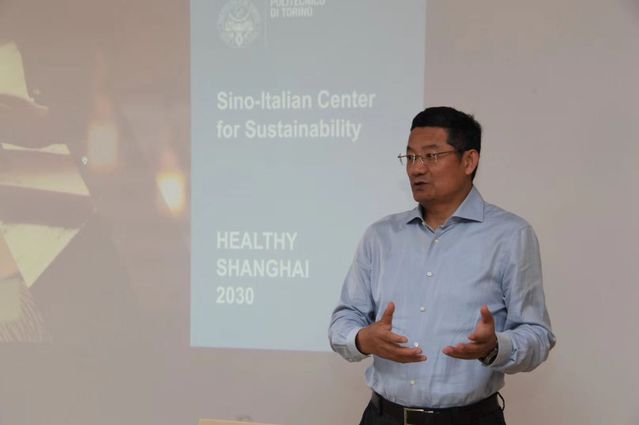
Professors Fan Jianwei (left) and Yang Dianhai (right), respectively
With committed Alumni, Contributing Tongji Strength to Fighting Against the Epidemic
Huoshenshan Hospital, which officially began admitting COVID-19 patients on February 3rd, is the pillar in Wuhan’s fighting against the coronavirus epidemic. As a specialized hospital for treating COVID-19 patients, Huoshenshan Hospital was built in less than 10 days. Its success and its “amazing speed” is inseparable from CESE Tongjier’s responsibility and commitment. 2012 CESE Master’s Student Li Weiwu, is the deputy director of CITIC CADI Sponge City Center. On receiving the design task, his team quickly formed a project team and completed the schematic design in only 24 hours. After 60 hours of continuous efforts, they delivered all the construction blueprints at dawn on January 26th. Raced with time and the dreadful epidemic, right completing the tasks above, he quickly engaged in the design of another emergency hospital in Hubei Province.
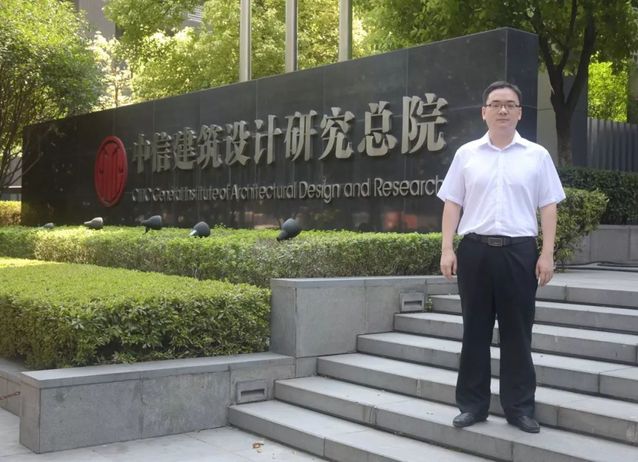
2012 CESE Master’s Student Li Weiwu
On February 8th, Leishenshan Hospital was established, and the 1,600 life-saving hospital beds were delivered, which could not be achieved without the contribution of Hong Ying, 1986 CESE Water Supply and Drainage Master’s Student. As the chief manager of water supply and drainage, she had always stayed on the frontline fighting against the epidemic. To ensure the pre-buried effectiveness of underground water supply and drainage pipes, she and the project team decided the route of the drainage network, the location of wastewater treatment plants and rainwater collection ponds. All was completed in 24 hours, in order to coordinate with the construction company to quickly start the foundation work. Then in less than 2 days, the construction blueprints for the outdoor water supply and drainage system and treatment facilities were delivered. Throughout the project, the designing and construction were carried out alternately and seamlessly, which ensured the project meets the schedule and quality standards.
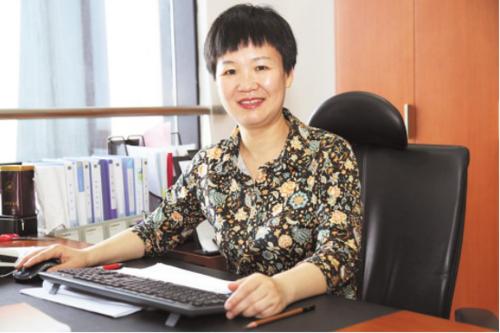
1986 CESE Water Supply and Drainage Master’s Student Hong Ying
Another alumna who also took part in the construction of Leishenshan Hospital is Hu Yinghui, 2011 CESE Environmental Engineering graduate. After graduating from Tongji University, she worked at the CSADI and has been engaged in the design of building water supply and drainage for nine years. With a tight schedule upon, the project design, sourcing and construction had to be carried out simultaneously. After the initial plan came out, she continuously optimized the system’s design according to the product supply and construction on site. During that period, she kept in touch with the construction company 24 hours a day through WeChat and mobile. She went to the construction site in the day to check on the progress and solve problems on-site, and revised the blueprints back home at night, to complete the design task in the shortest possible time and cooperate with completing the construction. After Leishenshan Hospital was established, she engaged in the Jiangxia Dahuashan Mobile-Cabin Hospital renovation project. Due to a shortage of time, she organized the construction and drew sketches at the survey site for the construction company to purchase relevant supplies, to ensure the mobile-cabin hospital could be put into use as soon as possible.
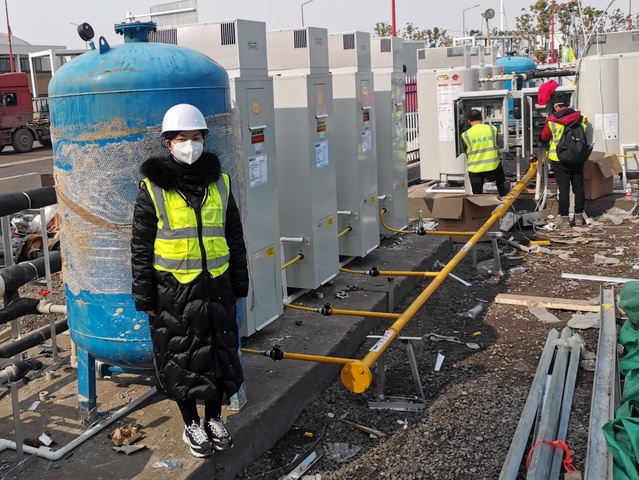
2011 CESE Environmental Engineering graduate Hu Yinghui
On February 12th, at the PBSC meeting to prevent and control the epidemic, President Xi Jinping stressed that the epidemic “is both a great battle and a serious test”. In the face of the epidemic, CESE Tongjiers have been tested in the fight against the epidemic. They kept in mind their first heart and their mission and bravely responded to our country’s call. From Professors and Lecturers making contributions for the country with their papers, to senior alumni fighting on the frontline, they all showed the Tongji spirit of commitment and dedicated their wisdom and strength to help humanity achieve ultimate victory over the epidemic. We couldn’t list all of them here, but they all have one name in common – CESE Tongjiers!
In the face of the epidemic, we are all in the same boat to overcome the hardships. CESE Tongjiers never stop fighting!